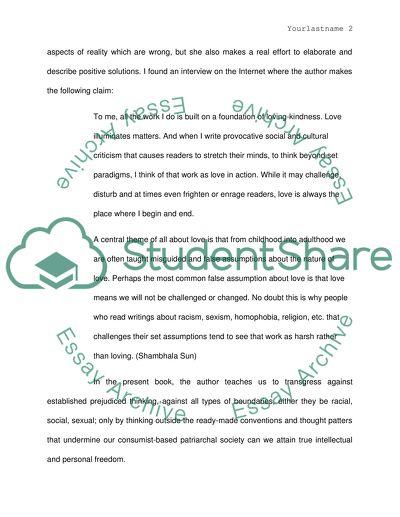Cite this document
(“Bell Hooks Is Teaching to Transgress Book Report/Review”, n.d.)
Bell Hooks Is Teaching to Transgress Book Report/Review. Retrieved from https://studentshare.org/literature/1516849-ethnic-studies-essay
Bell Hooks Is Teaching to Transgress Book Report/Review. Retrieved from https://studentshare.org/literature/1516849-ethnic-studies-essay
(Bell Hooks Is Teaching to Transgress Book Report/Review)
Bell Hooks Is Teaching to Transgress Book Report/Review. https://studentshare.org/literature/1516849-ethnic-studies-essay.
Bell Hooks Is Teaching to Transgress Book Report/Review. https://studentshare.org/literature/1516849-ethnic-studies-essay.
“Bell Hooks Is Teaching to Transgress Book Report/Review”, n.d. https://studentshare.org/literature/1516849-ethnic-studies-essay.


